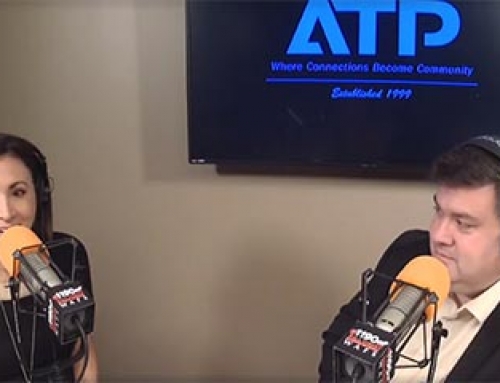How To Not Get Sued When Texting Clients
TCPA Compliance
Legal Disclosure: The Kotter Group is committed to complying with all applicable laws and regulations and expects its clients to do the same. While The Kotter Group cannot manage compliance for its clients, we have provided this short summary as a push in the right direction. Clients should review all compliance decisions with their own legal counsel to ensure the services are used only in full compliance. This guide is for informational purposes only and not for the purpose of providing legal advice.
Co-Author: This article was reviewed by Eric Allen; Law Partner; Allen, Mitchell & Allen PLLC; Salt Lake City, Utah. They specialize in assisting call centers and direct marketers with telemarketing law and federal compliance matters.
Understanding the Risk: Don’t let your agency fall victim to serial litigants and ambitious plaintiff’s attorneys seeking to cash in on those with good intentions who are noncompliant in communicating with their own customers through text messages (as well as phone calls and faxes).
Does it really matter? Absolutely!
Check out these penalties:
- Your business can be sued by recipients and be liable for up to $1500 per text message.
- A state may initiate civil actions against your company on behalf of its citizens.
- The Federal Communications Commission (FCC) may assess penalties against your business.
Does it really happen? Yes!
- Kaiser Foundation Health Plan settled for $5.35 million for making prerecorded calls to resell its insurance coverage.
- Jiffy Lube paid a $47 million settlement for sending one text message to 2.3 million customers requesting their consent to send them further text messages.
- Lithia Motors paid $2.5 million for sending unsolicited text messages to customers advertising their 0% financing offer on used cars.
- Twentieth Century Fox paid $16 million for sending unsolicited text messages to customers advertising the DVD release of
- Papa John’s Pizza paid $16.5 million for sending unsolicited text messages to customers.
Important: Note that all of the cases listed above involved sending text messages to the businesses’ existing customers. In October of 2013, the “established business relationship” exemption was eliminated for automated messaging, making it illegal for businesses to telemarket to their own customers without consent. So, despite public opinion to the contrary, an existing relationship does not qualify as consent to text, and it’s not just the big guys getting sued. There are law firms devoted entirely to suing businesses for violations of the Telephone Consumer Protection Act (TCPA), and some individuals even make a career (and lots of money) from these lawsuits.
Keep reading to learn the basics of the TCPA and how to protect your business.
Who regulates text messaging?
In the United States, text messaging regulations fall under the Federal Communications Commission (FCC), a government agency with significant regulatory powers, which has enacted several regulations relating to texting, including the Telephone Consumer Protection Act (TCPA).
You may have also heard of the Cellular Telecommunications Industry Association (CTIA). The CTIA is a trade association made up of wireless carriers. The CTIA has established rules for marketing via text messaging and enforces those rules through audits. You cannot be sued for violating CTIA rules, but your carrier could suspend your service. CTIA rules require text ads to include the following: statement that message and data rates may apply, help and stop commands, messaging frequency, links to terms and conditions, privacy policies, etc.
The Mobile Marketing Association (MMA) doesn’t enforce rules or laws, but it does release a best-practices document.
What is against the law?
In general, businesses may not engage in any of the following without prior express written consent from recipients:
- Use any form of autodialer to call (or text) a cell phone for marketing purposes;
- Deliver any prerecorded message or artificial voice for marketing purposes;
- Telemarket to individuals with whom they don’t have an existing business relationship and who are on any state or federal Do-Not-Call (DNC) list;
- Telemarket to individuals who have made an internal DNC request (opt out).
Also, per the FCC, text messages may only be sent between 8 a.m. and 9 p.m. of the time zone of the recipient.
How do I obtain express written consent?
An example of express written consent is as follows but may need to be further adapted depending on the circumstances:
By clicking SUBMIT [or by signing below, entering your phone number, etc.], you expressly authorize ABC Insurance and its partners to call/text you with offers and reminders at the number you provided, which you certify is your own number, including through the possible use of automated technology and recorded messages. You are not required to consent in order to participate since you can call us directly instead. [Submit button, signature line, phone number field, etc.]
- If consent is obtained on a signed document, save the document.
- If consent is obtained on a web form, capture and store the URL where consent was obtained, time and date stamp, IP address of the consenter, and a screenshot or other data showing what they saw when they consented and what they entered in the form fields.
- For either method, store proof of the consent for at least 5 years beyond the last date you will call/text in reliance on such consent.
Is consent always required?
Generally yes. Limited exceptions include when you manually text or call someone without using an autodialer and assuming they are not on a DNC list.
Is written consent always required?
For automated marketing messages, yes, and since almost anything sent from businesses to consumers counts as a marketing message, it is safest to obtain prior express written consent.
For automated, non-marketing (transactional) messages, such as appointment reminders, written consent is not necessarily required. Instead, it may be enough to obtain “express consent,” which may be implied by the consumer’s prior provision of their number to the client in the normal course of business without conditions, and so long as they have not opted out or had their number reassigned.
Still, the non-marketing message must be “closely related” to the original purpose for which the number was collected, and the provision of the number must be well documented. There must also be no promotional content or purpose. Non-marketing messages are not subject to the DNC lists.
What is a non-marketing (transactional) message?
Automated transactional messages still require express consent (not necessarily written). Transactional messages contain information that is necessary for your customers to use your product or service.
Transactional texts usually contain information that customers have requested. Customers consent to certain transactional texts when they provide their number. For example, if during a checkout process users are given a prompt that says, “Provide your cell phone number for shipping and delivery updates,” they provide consent for those updates by entering their numbers.
Example non-marketing message:
Hello ______, This is Adam from Adam’s Insurance calling to confirm our appointment at ______. If this is still a good time for you, please press 1. To reschedule, please press 2.
Be careful that your transactional messages fall within the scope of the consent. For example, if a patient provides his number for verification purposes when picking up a prescription, he’s not automatically consenting to receive prescription refill reminders. While some may appreciate prescription reminders, they’re not necessary and therefore don’t constitute a transactional message. This exact scenario cost Walgreens $11 million.
What counts as a marketing message?
Any message sent with the purpose of increasing sales, promoting your product/service, or raising awareness about your business is a marketing message and requires express written consent. Any dual-purpose messages are also considered marketing.
Example marketing message:
Hello ______, This is Adam from Adam’s Insurance calling to let you know that your policy on the _______ is expiring in 30 days. When would be a good time for me to call back to review your options and see if we can save you some money?
If you decide to invite people to subscribe to a text messaging campaign, be sure to follow the CTIA rules and the TCPA law, which require you to use a disclosure that looks something like this:
10% off Your Next Purchase
Text INSURE to 12345 to subscribe to receive recurring SMS offers.
By participating, you consent to receive text messages sent by an automatic telephone dialing system. Consent to these terms is not a condition of purchase. Message and data rates may apply. Text STOP to opt-out. T&C/Privacy Policy: www.smithinsurance.com/sms-terms
Reminder: The advertisement for your campaign may NOT be sent out via text unless you already have express written consent from each recipient.
Bottom line
In the end, it comes down to consent.
- For automated messages, you MUST obtain prior consent.
- If the automated message is non-marketing (transactional), the consent does not have to be written.
And remember, if someone consents to transactional messages, they’re not by default consenting to promotional messages too. When in doubt, treat the message as marketing just to be safe and obtain prior express written consent. Also, be sure to immediately honor any opt-out requests.
Ask a Lawyer (Q & A)
Q: If a customer calls my insurance agency and leaves a voicemail, is it legal to send an automated text response such as, “We’re sorry we missed your call. You can always text us at this number, use our online chat, or go online for more support options”?
A: No, you need express consent for automated texts, and you don’t know for certain why they called unless they leave a message detailed enough to constitute consent. Also, the automated text response wouldn’t know if the caller was a client who had given consent or a prospect (or wrong number) who had not.
Q: If a customer texts me a question, can I reply with an automatic “out of office” text?
A: No, for the same reason as above – you need “express consent” for an auto reply, which you do not get merely from them attempting to contact you. And the auto responder doesn’t know if the person who texted you has given consent already or not.
Q: If a customer calls with a question, can I reply via text?
A: Yes, if you do so manually and without using an autodial capable system.
Take the Quiz
How well do you understand the laws about texting your own clients? Take this quiz to find out.
Decide if each sample text message below is a transactional message or a marketing message. Remember, written consent is required for all marketing messages, even to your own clients, and express consent is required for all transactional messages.
- “Click here to access the ID card you requested.” (transactional)
- “Happy birthday from all of us at Smith Insurance!” (This is marketing because it is meant to promote your business and is not necessary information.)
- “Sorry we missed your call. Please call or text us back at your convenience.” (marketing if the goal is to sell/advertise when they call back)
- “Your policy is now in force. Click here to download our mobile app.” (marketing)
- “Your next auto insurance payment is due on the 15th. Click here to pay online.” (transactional)
- “Your homeowner’s policy expires in 60 days.” (marketing if your goal is renewal)
- “Please confirm your appointment with Kim at Smith Insurance tomorrow at 3 p.m. Reply Y for yes and N for no.” (transactional)
- “Please confirm your appointment with Kim at Smith Insurance tomorrow at 3 p.m. Reply Y for yes and N for no. Thanks, Kim. www.smithinsurance.com” (marketing because the website has marketing content.)
- “Receive 10% off your premiums when you insure both your home and your car with us!” (marketing)
- “Need a quote?” (marketing)
- “Click here to download your certificate of insurance.” (transactional)
- “Thank you for the information. Your claim is being processed.” (transactional)
- “Due to inclement weather, our office will be closed today.” (transactional)
Congratulations! You are well on your way to understanding the laws and rules of texting your customers and avoiding being named in the next class-action lawsuit.






